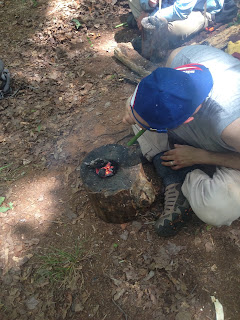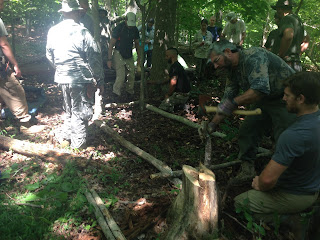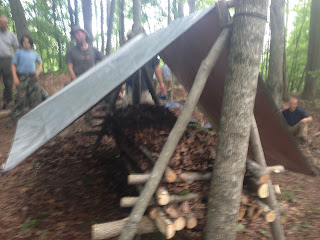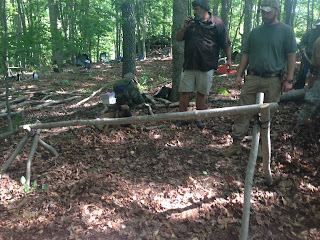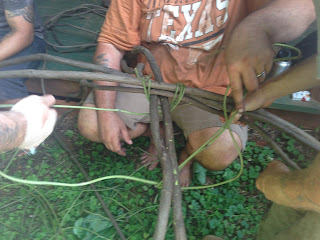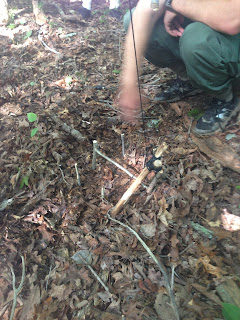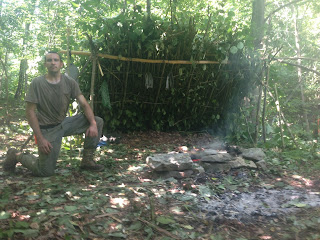The Sustainable Homestead Institute is an educational non-profit physically located in southwestern Virginia that specializes in sustainable development, ecological land design, and nature reliance. Learn what it takes to create self-enriching abundant agricultural systems through environmental connection and ancestral skill immersion.
Tuesday, April 5, 2016
Chicken Tractor 1 of 10
We are significantly expanding the pastured poultry operation. A mobile chicken tractor keeps birds contained and happy and constantly exposed to fresh pasture. This is the first of 10, and its construction yielded crucial hints to finishing your tractor quickly. Stay tuned for detailed step by step instructions.
Thursday, December 3, 2015
Quick and Tasty Pine Needle Tea
Pine trees can be found all over the world, and when combined with water makes a quick and tasty pine needle tea. Wether in the bush or the kitchen at home, you can enjoy a cup packed with Vitamin C with minimal equipment.
Materials:
A cup of pine needles
Knife and cutting board or scissors
3-4 cups Water
Heat Source
Filter: French Press, cheesecloth
Coffee Cup
1. Harvest pine needles from a source at which you are confident chemical spray has been kept to a minimum. Christmas tree farms particularly may cover their fields with pesticides to minimize weed or bug damage.
2. Begin to heat water.
3. Clean off the bark or paper looking sections leaving green pine needles remaining.
4. Increase the surface area by finely chopping the needles.
5. Add pine needles to warm water. For best tasting tea, look for gentle steam, but no bubbles, or between 160 and 170 degrees F.
6. Steep your water and needles together for about 10 minutes.
7. Strain out needles. A French press effortlessly strains out needles or ground coffee beans that could be added to the compost pile for a rich soil kickstart.
8. Serve
A cup of pine needles
Knife and cutting board or scissors
3-4 cups Water
Heat Source
Filter: French Press, cheesecloth
Coffee Cup
1. Harvest pine needles from a source at which you are confident chemical spray has been kept to a minimum. Christmas tree farms particularly may cover their fields with pesticides to minimize weed or bug damage.
2. Begin to heat water.
3. Clean off the bark or paper looking sections leaving green pine needles remaining.
4. Increase the surface area by finely chopping the needles.
5. Add pine needles to warm water. For best tasting tea, look for gentle steam, but no bubbles, or between 160 and 170 degrees F.
6. Steep your water and needles together for about 10 minutes.
7. Strain out needles. A French press effortlessly strains out needles or ground coffee beans that could be added to the compost pile for a rich soil kickstart.
8. Serve
Thursday, August 13, 2015
Subscribe to:
Posts (Atom)


























